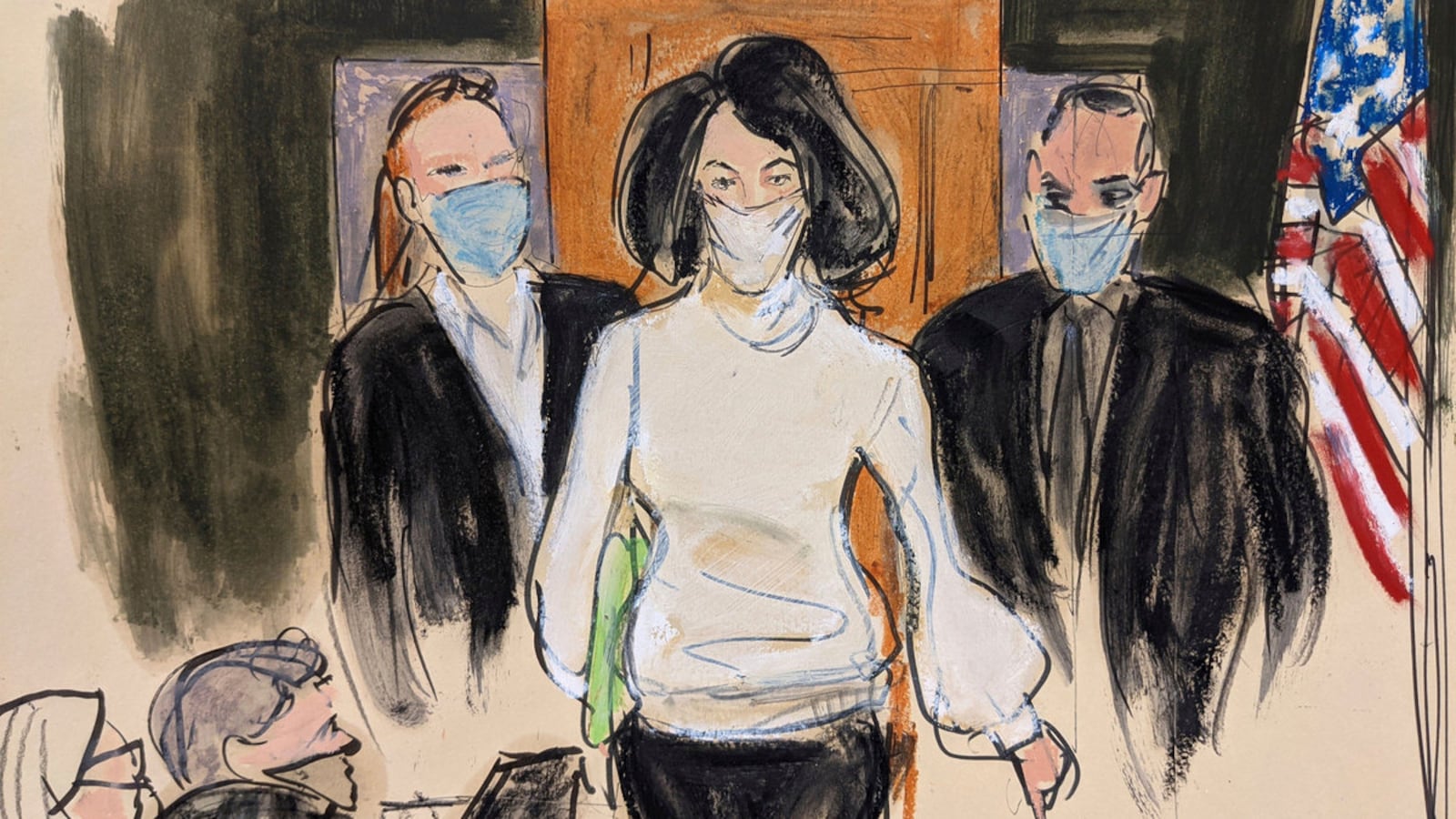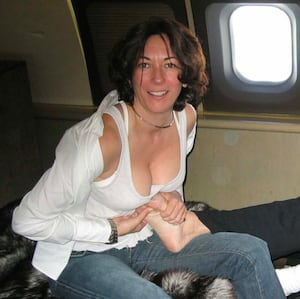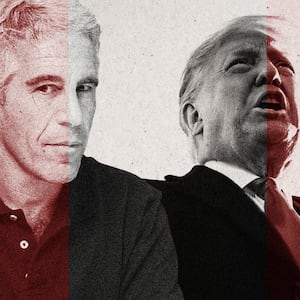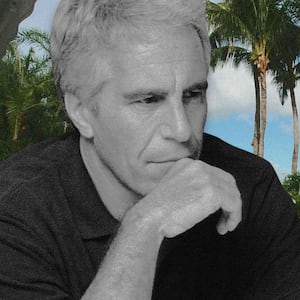A former executive assistant to Ghislaine Maxwell testified at the British socialite’s sex-trafficking trial on Thursday, telling jurors she “highly respected” and “looked up to” the accused accomplice to Jeffrey Epstein.
Cimberly Espinosa, 55, was in her late twenties in 1996 when she began working as a legal assistant to Epstein’s longtime in-house lawyers, Darren Indyke and Jeffrey Schantz. But one month into her employment, Espinosa says, she filled in for an assistant to Maxwell and the heiress was so impressed that she enlisted Espinosa full-time.
“I learned a lot from her,” Espinosa told jurors, adding, “I attribute my career as an executive assistant to what I learned working for Ghislaine.”
“Ghislaine was very important to me,” said the executive assistant, who now lives in California and works for the CEO of a global company. “She was obviously important to Jeffrey Epstein because of his personal residences.”
Espinosa—who herself was accused in a separate lawsuit of arranging Epstein’s encounters with an underage victim—was the first witness called by the defense as it launched its case on Thursday and was all smiles as she recalled interviewing for a job with Epstein’s Madison Avenue firm in the back of a chauffeured vehicle. She said Maxwell was busy running errands and asked her questions as they drove around the city.
The former employee testified that her role was administrative and included booking travel and appointments and making purchases and sending packages, and that Maxwell’s personal assistant, Emmy Tayler, was responsible for walking the socialite’s dog, carrying her handbag and fetching her coffee. (Tayler has been mentioned multiple times at trial but hasn’t testified, and a victim known as “Jane” claimed that “Emmy” participated in group sexual encounters with her. Jane later testified, however, that she met Emmy in New York when she was 17, which is of the age of consent in the state.)
Espinosa also hinted at enjoying a friendly relationship with Maxwell even after she left her employ in 2002, saying Maxwell set up a job interview for her with Gateway co-founder Ted Waitt, who dated Maxwell in the 2000s.
Three years ago, Espinosa added, Maxwell allowed her to stay at her London townhouse during a vacation in Europe.
She also waxed nostalgic about Epstein: “He was a giver. He was generous. I always knew him to be donating to charities and being a kind person.” His largesse included paying for massages and a personal trainer for Espinosa, as well as gifting her tickets to The Lion King on Broadway. “I recall him being friendly with the producer of the show. At the time, [Epstein] was sending a lot of people to The Lion King.”
Espinosa’s courtroom testimony appears to be the first time she’s spoken publicly about Epstein and Maxwell. In 2019, an accuser named Jennifer Araoz sued Maxwell and Epstein’s estate and named Espinosa as a defendant, too. “There were also two assistants of Epstein that would call Ms. Araoz from Epstein’s office to schedule these sexual encounters,” the lawsuit alleged, adding that “one of those assistants was Ms. Espinosa, who Ms. Araoz would see at the property after speaking to.”
On Thursday, Espinosa said she scheduled appointments for Epstein “5 to 10” times with professional masseuses. She claimed she never saw any underage females visit Epstein’s office.
Still, Espinosa confirmed seeing a victim named “Jane” at Epstein’s office with her mother several times. She testified that Jane’s mom called frequently for Epstein over a span of a couple months. (Jane was the government’s first victim to testify and alleges Epstein and Maxwell recruited her into their alleged sex ring when she was 14 years old.)
Asked how old Jane appeared to be, Espinosa answered, “Probably 18.”
Jane’s mother, Espinosa added, referred to the girl as Epstein’s “goddaughter.”
“She was treated with the utmost respect… as family of Jeffrey,” Espinosa told jurors. “Given that we thought Jane was the goddaughter, we thought she was extra special.”
Espinosa said Maxwell eventually stopped coming to Epstein’s office and that Sarah Kellen, an alleged co-conspirator in Epstein’s Florida case, replaced her.
Defense lawyer Christian Everdell also asked Espinosa if she ever saw Maxwell pregnant, to which the former employee answered “no.” (Carolyn, another victim who testified at trial, once claimed to see a photo of an expectant Maxwell.)
On cross examination, Espinosa conceded that she only worked out of Epstein’s Madison Avenue office and never out of the financier’s mansion. Espinosa also said she’d never visited Epstein’s Palm Beach lair, where he molested underage girls during “massages.”
It’s unclear which other Epstein insiders could testify in Maxwell’s case. Before the trial broke for lunch, the defense was in the middle of questioning memory expert Elizabeth Loftus, who said that recollections of traumatic events can be contaminated by external suggestions.
In a recent court filing, Manhattan federal prosecutors said Maxwell’s team provided them with a list of 35 potential witnesses in alphabetical order but didn’t disclose who they planned to call to the stand on Thursday and Friday.
Last Friday, Maxwell’s lawyer Jeff Pagliuca told the court he expected the defense’s case to last “no more than four days” and would take “more likely two to three” days. Everdell, another lawyer for Maxwell, added that some of the defense’s potential witnesses were asking to testify anonymously—a move the government opposed.
“We’ve been in contact with some of our witnesses,” Everdell said, “and we are already getting what I think are valid requests that these witnesses testify anonymously or under some sort of protection, name protection, whether that’s a pseudonym or a first name, we have to work that out.”
Meanwhile, Maxwell’s attorney Bobbi Sternheim raised concerns about the timing of jury deliberations, suggesting the 12-member panel may feel rushed to make a decision before Christmas if closing arguments occur on Dec. 21 and the judge provides charging instructions the next day. (Jurors will go on a holiday break on Dec. 23 and return Dec. 27.)
“Our concern is that the jury might feel we don’t want to come back and would rush to judgment in a case that we know they were prepared to be here until the middle of January,” Sternheim told Judge Alison Nathan. She added, “To put the jury in a posture where they have basically four hours to deliberate before the holiday season begins is very dangerous and that’s why I’m asking the court to consider that.”
“I do understand the concern,” Nathan replied. “And we’ll see where we are.”
The government began presenting its case on Nov. 29 after opening statements and called 24 witnesses over a 10-day period. Prosecutors initially estimated they’d need up to four weeks to produce evidence at trial but rested early.
All four victims named in the Maxwell indictment testified in court: Two under the pseudonyms “Jane” and “Kate,” a third using her first name, Carolyn, and a fourth, Annie Farmer, going by her real name.
Prosecutors finished their case on Friday, hours after Farmer took the stand and told jurors Maxwell groped her during a nude massage at Epstein’s New Mexico ranch. Farmer was 16 when the alleged assault occurred in spring of 1996.
After Farmer testified, the prosecution called her high-school boyfriend and her mother to the witness box to support her testimony.
When assistant U.S. Attorney Lara Pomerantz asked Farmer whether she wrestled with the decision to come forward about her encounters with Maxwell and Epstein, Farmer replied that it felt like a “shameful memory” but she felt “compelled” to speak out.
“If I could help there be any accountability or these people being stopped in some way, it felt like it was worth it, even if it was uncomfortable,” she testified.
Editor’s note: This story has been updated to reflect full court testimony.








